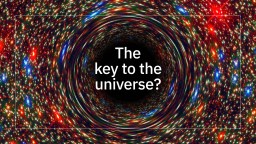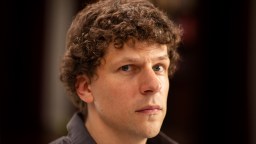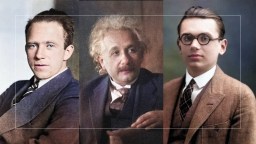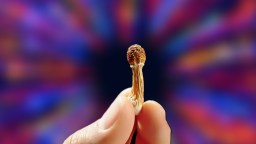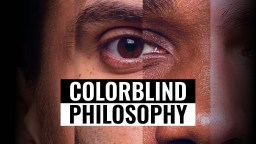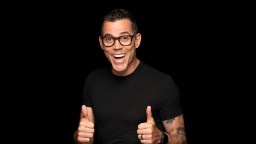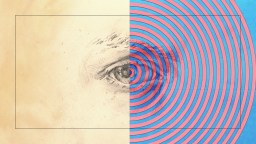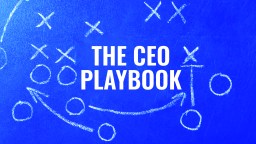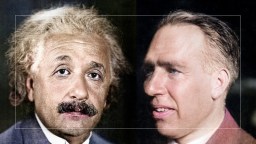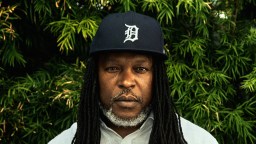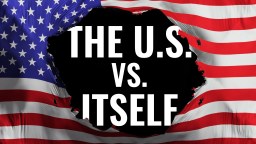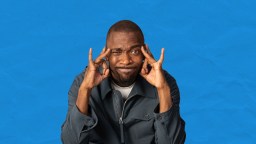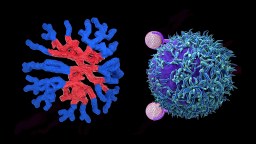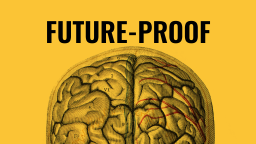All Videos
All Stories
James Suzman lived with a tribe of hunter-gatherers to witness how an ancient culture survives one of the most brutal climates on Earth. His learnings may surprise you.
▸
8 min
—
with
Harvard has conducted an 85-year-long study on what makes humans happy. Psychiatrist Robert Waldinger explains what they found.
▸
15 min
—
with
Pathologically busy people clamoring for happiness. Founder of HATCH Monica Parker explains how we can do so much better than that.
▸
6 min
—
with
Nike athlete and famed Peloton instructor Tunde Oyeneyin shares how she turned her pain into purpose.
▸
7 min
—
with
Is information intrinsic in our universe? NASA’s Michelle Thaller explains.
▸
8 min
—
with
Marketing maverick Gary Vaynerchuk reveals how empathy, listening, and patience aren’t just virtues – they’re your ultimate advertising tools.
▸
7 min
—
with
Social media distorts reality. Here’s how to take it back.
▸
16 min
—
with
Actor, author, and director Jesse Eisenberg demystifies the role of anxiety and self-doubt in leadership.
▸
9 min
—
with
When one path is blocked, a new one must be paved. How Einstein, Heisenberg and Gödel used constraints to make life-changing discoveries:
▸
5 min
—
with
James Fadiman PhD, who has 60 years of experience in the field, believes they are.
▸
6 min
—
with
Coleman Hughes advocates for a colorblind America, presenting compelling arguments in favor of treating all individuals without regard to race.
▸
37 min
—
with
The Osbournes was MTV’s biggest show – and it almost cost Jack Osbourne his life. Here’s how his family’s reality TV fame stole his childhood, and how he’s been able to heal since.
▸
6 min
—
with
Enlightenment: After the ecstasy, the laundry. Why enlightenment is never an end in itself.
▸
5 min
—
with
You know Steve-O. Now meet Steve Glover, as the professional stuntman talks to us about pain, insecurity, and never finding contentment.
▸
7 min
—
with
What is perception, really? Philosopher Alva Noë on why perception is a puzzling phenomenon:
▸
3 min
—
with
Author of the Canceling of the American Mind Greg Lukianoff explains the current state of free speech in the United States.
▸
32 min
—
with
Adam Bryant interviewed over 1,000 CEO’s. These are the 3 critical skills to running a company.
▸
5 min
—
with
The creative force behind The Vampire Diaries explains how she learned to deal with her insecurities.
▸
7 min
—
with
Science writer George Musser on the unsung role of friendship in science’s biggest discoveries.
▸
6 min
—
with
From hunter-gatherers to the American Dream: This is how humanity’s definition of “work” has developed over time.
▸
9 min
—
with
We’ve all tried to win an argument by bringing up statistics that support our view. But here’s why that doesn’t work, according to a neuroscientist.
▸
6 min
—
with
“I was incarcerated well before I was in prison and I was free before the gates of prison opened up and let me out.”
▸
6 min
—
with
The United States is the biggest risk in 2024. Here are the other 9, explained by Ian Bremmer, president of Eurasia Group and GZERO Media.
▸
34 min
—
with
Former SNL star Jay Pharoah answers our most challenging questions about life, self-esteem, and changing his mind.
▸
7 min
—
with
60% of people feel disconnected. Harvard professor Robert Waldinger addresses the science behind humanity’s loneliness epidemic and suggests ways to solve it.
▸
6 min
—
with
What if AI could tell us we have cancer before we show a single symptom? Steve Quake, head of science at the Chan Zuckerberg Initiative, explains how AI can revolutionize science.
▸
5 min
—
with
Biology plays an important role in emotional reactions, but neuroscientist Kristen A. Lindquist posits that our culture is just as influential.
▸
7 min
—
with
He revolutionized hospitality, twice. Chip Conley shares his secrets to being able to evolve in an ever-changing world.
▸
9 min
—
with
Over 250 million records sold and more than 70 platinum hits later, Jason Derulo sits down with us to talk about goals, insecurities, and why he still doesn’t feel like he’s “made it.”
▸
6 min
—
with
Eastern religion meets Western psychology: meet the Harvard professor who’s also a Zen priest as he explains how to relieve suffering using both faith and neuroscience.
▸
8 min
—
with




